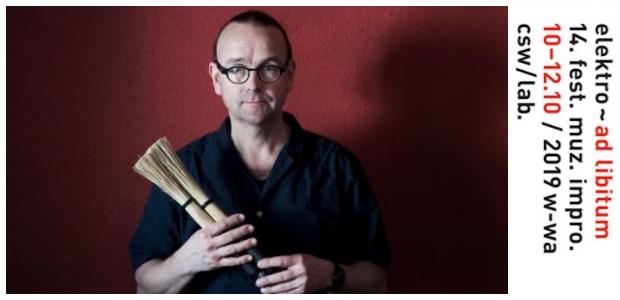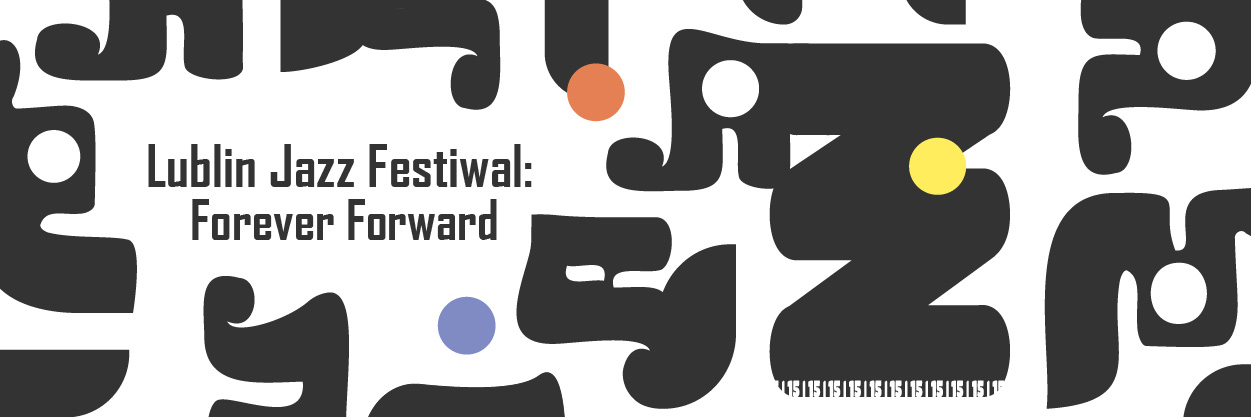Lucas Niggli – “I don’t want to be squeezed in the corner”

Lucas Niggli is a Swiss drummer, a great improviser, and a very open-minded man. He has found time to answer my questions about his Cameroon’s roots, ways to create melody with drums and his attitude to improvised music.
Recently you’ve released the album „Figuratio” with Charlotte Hug. How did your cooperation with Charlotte begin?
I know Charlotte for a very long time. We are both very active musicians on the Swiss scene of improvised and transdisciplinary art projects. Three years ago Charlotte invited me for a workshop in the University of Arts in Zurich, where we both teach. After this fantastic collaboration we’ve decided that we should play together some duo music. We’ve met at my studio and just have had fun creating music together. It’s interesting that we’ve known each other for so many years and we didn’t play together until just three years ago.
What do you like the most about performing with Charlotte?
Charlotte has a huge range to express herself and to interact with music as well as with space. She’s not like an average musician who plays and improvises. She is versatile in using a lot of colours, textures and spaces. Besides, Charlotte is really aware of everything what she does: the music, the audience, players, the acoustics. This hyper-agility in playing as well as in being allows her to create a complex music even in duo situation. Despite the fact that we play in duo formula, there’s nothing missed here, our music is rich and full of energy.
You have also performed with a great singer - Andreas Schaerer, and released an album „Arcanum” with him. On this album Andreas Schaerer sometimes tries to imitate drums. What is the most melodic potential of drums?
Andreas is not a typical singer and I’m not a typical drummer. I’m very interested in augmenting the vocabulary of a drummer. That is why I love to play in duos, where the drummer is not just squeezed in the corner as a time keeper in a rhythm section. I’m really grateful that I had opportunity to play in duos with such great artists, like pianists Alexander Hawkins, Sylvie Courvoisier, and other musicians, like Andreas, Charlotte, or Chinese guzheng player - Xu Fengxia. They gave me opportunity to dialogue. In those projects I’m responsible for creating melody. I’m using many ways of hitting the drums, touching skin, or using instruments like cymbals and tom-toms.
Many musicians dream about living in USA, being part of the New York Jazz Scene. Have you ever thought about leaving Europe?
Actually, for me there is no need to. I’m not interested in going there because the government there sucks... But of course NY is not US. It is a very intense city with a history, interesting to live in. But Zurich is in the middle of Europe. We have such a rich cultural life here. Each evening we can go for three concerts of improvised, classical, contemporary music. It’s really fantastic that so many great musicians have passed through our city. I’ve never felt necessity of leaving my country and live abroad. Of course I travel a lot and I love to play with musicians from other countries. But for a living, it is much easier to concentrate on my own music in my own workspace. Because of this, I can increase my creativity and be more focused on my music. I’m afraid that I would lose my head in a big city, such as New York. I have enough inspirations around me, here in Switzerland.
You are an experienced musician. What do you think about general condition of improvised music in Europe?
It’s a difficult question. I’m very optimistic person, that’s why I’m not worried about it. What I like the most is the fact that this music has a very high reputation among young generation of musicians. In Zurich we have very rich improvising scene, especially among young musicians. Recently, initiatives where young musicians play their music at homes became very popular. They are not depending on big clubs to be booked. I’m teaching improvised music at the University of Arts in Zurich ZHdK. Since I’ve started doing this the number of students who really love improvised music had grown. Young people want to play, listen and improvise. I’m very positive about it. But it comes in waves. 10 years ago it was more important to play with a computer and now we are using more acoustic instruments and improvise on them. I don’t know if it will continue like this, but now improvised music is certainly back. Maybe also because we are surrounded with “virtuality”, and improvised music is definitive an alternative!
You were born in Cameroon. Do your parents come from there? Do you have any musical memories from the period when you lived there?
Yes, I was born in Cameroon. My parents are Swiss, they worked there for development aid. I’ve lived my first seven years there. I have a lot of musical memories from that period. The air was full of music, tense vibration and joy of life. It is very important part of my life. I’m sure that my affinity for drums was inspired by Cameroon.
This year you recorded your first solo album, “Alchemia Garden”. When musicians improvise, they always cooperate and listen to each other, take energy from themselves. From where do you get your inspiration while improvising when you play solo gigs?
I love to play with partners in duos, trios, to improvise with others. But I do also play many solo concerts. My editor Patrick Landolt from INTAKT Records asked me to make this solo production. It took me a while to find the right place to record it. In the end, I’ve decided that we will do production in my hometown in Uster, near Zurich. I played there for a whole week, every night for an audience. I wasn’t alone with the microphone in the studio - I could gain energy from people, had a chance to interact with them. It inspired me a lot. But the audience was not the only inspiriting factor during recording “Alchemia Garden”. The place where I played was full of plants. We had put circa 100 beautiful plants in the room, so I played among plants for my audience.
It felt very magical. I played for the whole week in this setting, and with time I even forgot that we were still recording. After that week I selected the best moments out of more than 9 hours of recorded material. It gave me 45 minutes of music. This is how my first solo album appeared.
- Aby wysyłać odpowiedzi, należy się zalogować.







